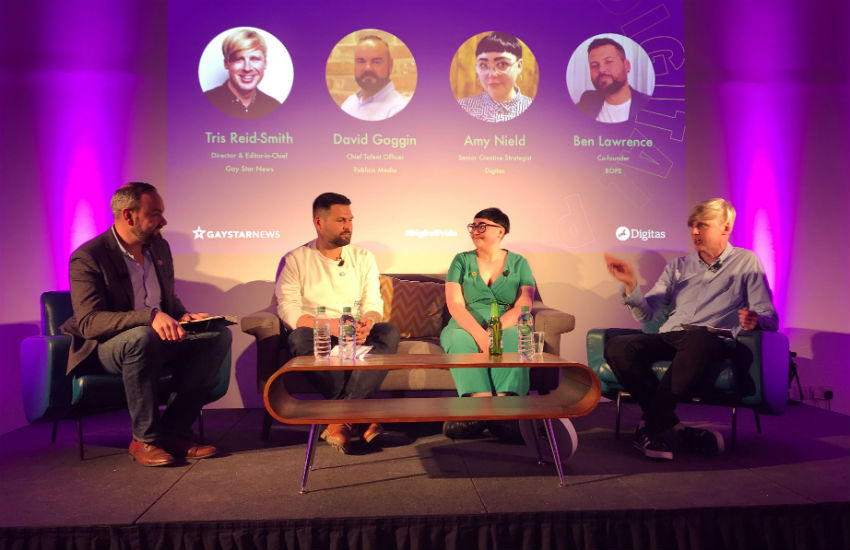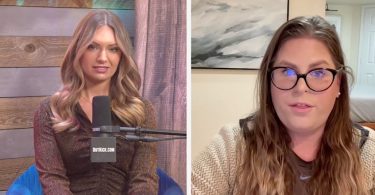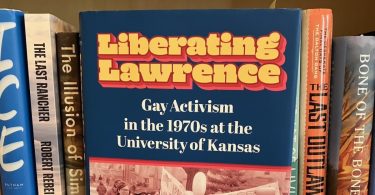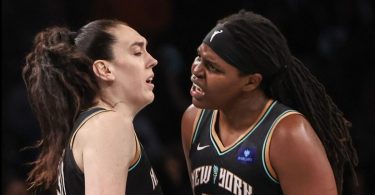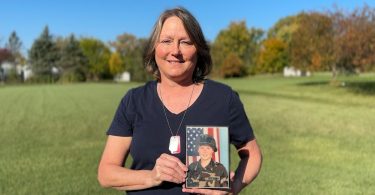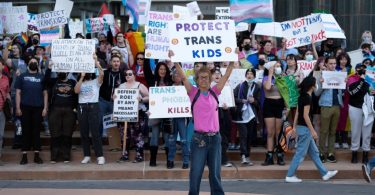The panel discussion hosted by Digitas as part of Digital Pride 2018 (Photo: David Hudson)
Marketing agency Digitas has revealed the results of groundbreaking research it has done into the experiences of LGBT employees in marketing agencies.
Digitas conducted an online survey in the run up to this year’s Digital Pride festival. Digital Pride, organized by Gay Star News, is the world’s only online LGBTI Pride event.
It canvassed the opinions of both LGBT and straight employees in the marketing sector.
‘People often think of agencies as safe, liberal places for people to work,’ said Michael Islip, CEO at Digitas. ‘But does that mean agency leaders have become complacent?
‘We know there’s a problem with diversity in this industry, and we wanted to explore just how deep this problem goes.’
Over 200 people took part in the survey – which was coordinated and compiled by Digitas senior creative strategist Amy Nield. Last night, at a panel discussion held at the London headquarters of Digitas, she unveiled the results.
Key findings included the following
- 22% of LGBT people surveyed said their sexual or gender expression influenced their choice of career.
- 31% of LGBT people said they had been outed by someone at work: ‘There’s an issue around people feeling able to share other people’s identities,’ commented Nield.
- LGBT+ people felt it was more important to be fully themselves at work than straight people, but many said they had altered something about themselves. This included mannerisms, appearance, their preferred choice of pronoun, or the pronoun of a partner (ie using ‘they’ instead of ‘he’ or ‘she’).
- 44% said they had changed their mannerisms; 13% said they had altered their appearance; 13% used different pronouns, and over 50% used different pronouns or generic pronouns when talking about a partner.
- 15% of LGBT people in marketing agencies reported experiencing verbal or physical abuse or harrassment.
- 39% have experienced homophobic or transphobic jokes.
- 18% of LGBT+ people felt their sexuality had negatively affected their relationship with colleagues.
- If you’re LGBT+ then you’re twice as likely to have been asked about your sex life by work colleagues.
- 13% of LGBT+ people felt their sexuality or gender expression had affected their career progression or success negatively.
- By contrast, many of the straight respondents didn’t think their agencies had a problem with prejudice towards LGBT people. Less than 1% of straight people believe LGBT+ people faced discrimination in their agency.
- Just 11% acknowledged there was a problem in the industry as a whole. Less than half of the straight people surveyed said there was a need for LGBT+ networks in marketing agencies.
‘It’s the small and slight things that build up over time’
Nield said that homophobia, biphobia and transphobia was often covert. ‘It’s the small and slight things that build up over time that can make a difference.’
She identified a lack of trans responses in the survey and believes many marketing agencies still had some way to go before they could claim to be truly trans welcoming.
She said that although most of the LGBT people surveyed felt comfortable being out to colleagues, they were slightly less comfortable being out to clients.
A ‘boys club mentality’ still persisted at some respondents’ workplaces. One man was told by his boss that he wasn’t trusted to deal directly with clients as he was ‘too camp’.
Following the presentation of the results, Nield joined a panel discussion hosted by Tris Reid-Smith, editor of Gay Star News. Also on the panel were Ben Lawrence, co-founder of the boutique marketing agency BOPE, and David Goggin, Chief Talent Officer with Publicis, one of the world’s biggest marketing companies.
The four discussed ways in which covert homophobia could be tackled, and the best ways to convince potential allies that this is everyone’s problem.
Make it personal
Goggin pointed to the success of the equal marriage campaign in Ireland, and its ‘Make it personal’ tone.
He said sharing personal stories with straight colleagues about discrimination and bias was the best way to educate them. At the same time, senior leaders need training in unconscious bias.
Nield talked about the importance of LGBT+ networks – for sharing experiences and providing support. Networks also send a clear signal out to future job seekers that they can be themselves in the workplace.
Lawrence agreed with Goggin that making things personal was often the best way forward. Or has he put it, ‘celebrating my sexuality through the mundane’, such as dropping into a conversation with a client that he’d spent his weekend painting the bathroom with his husband.
In relation to LGBT+ facing comments or questions about their sex lives at work, Nield said this was partly due to some straight people seeing LGBTI people as something of a novelty.
‘And there are stereotypes about gay men presented in the media, and those are the only reflections of LGBT that people see, so they feel that they are able to ask those things.’
You can watch the full discussion below.
Tris Reid-Smith of Gay Star News said, ‘The Digitas research is an important first look at the experiences of LGBT+ people in marketing.
‘The industry may not be the most homophobic or transphobic – but I was surprised by how many people experienced exclusion and discrimination, often done covertly.
‘We must applaud Digitas for its leadership on this subject and I hope it encourages others to follow.’

